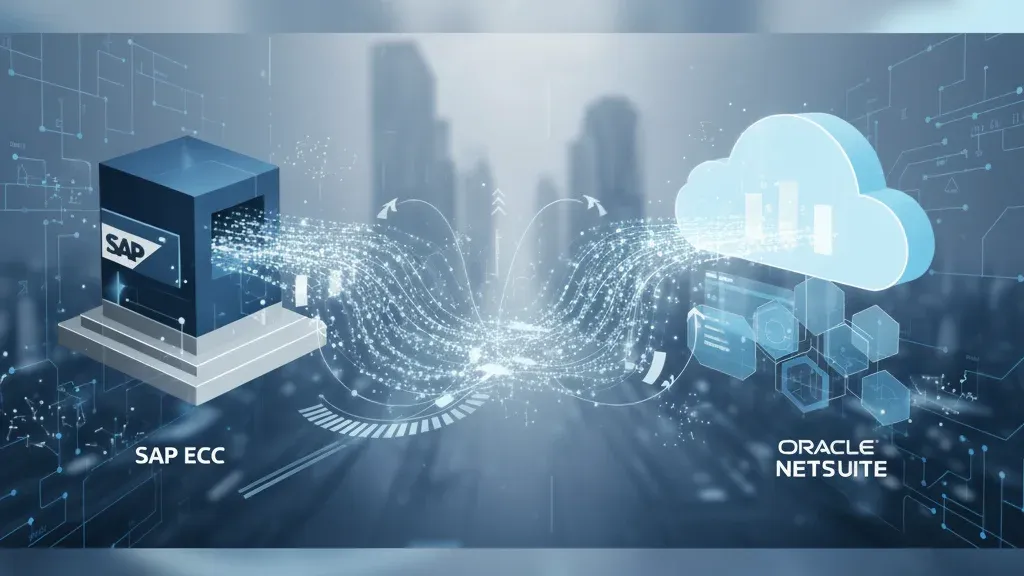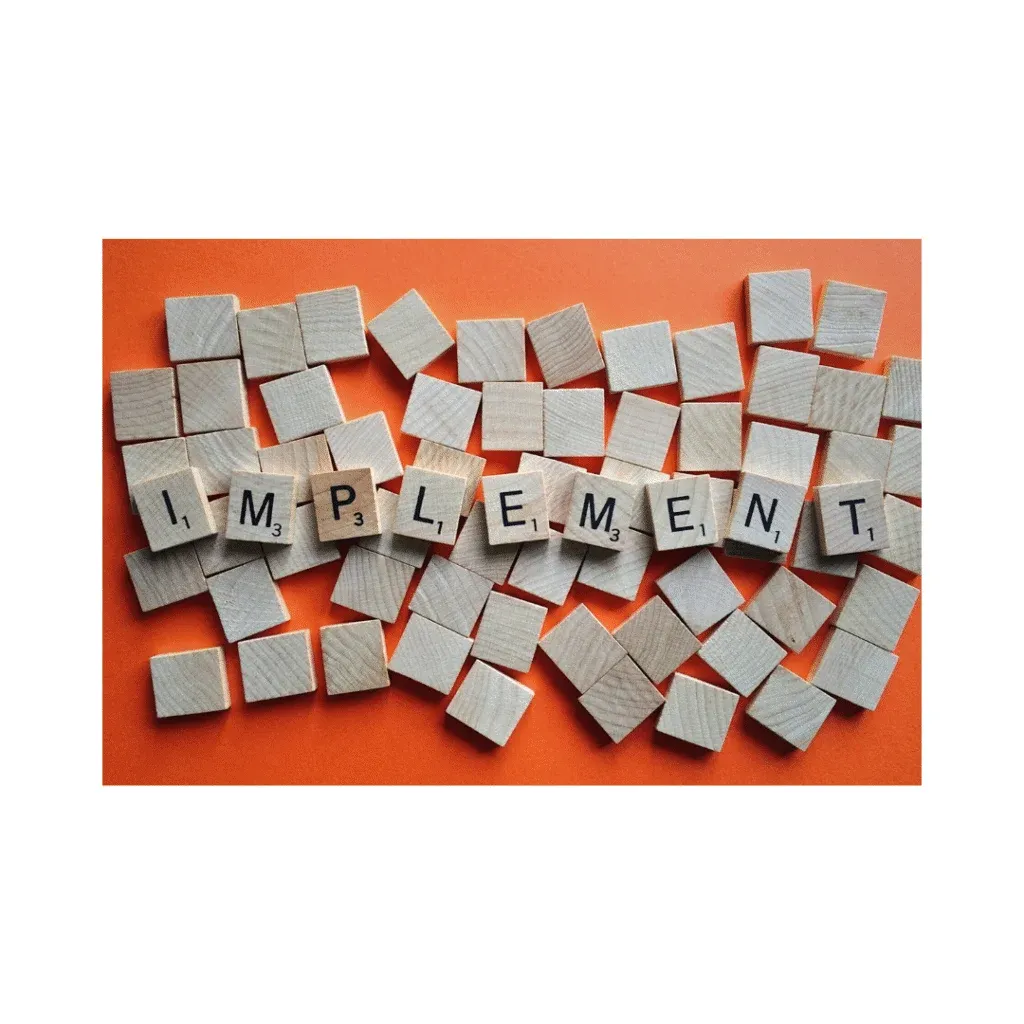Why Companies Migrate from SAP ECC to NetSuite
Many businesses stick with SAP ECC because it’s familiar. But over time, limitations become clear:
- Cloud-first advantage: NetSuite operates entirely in the cloud, reducing IT overhead and enabling real-time decision-making.
- Scalability: NetSuite grows with your business without costly infrastructure upgrades.
- Unified ecosystem: Financials, CRM, eCommerce, and supply chain management all in one platform.
- Faster innovation: Frequent updates and modern workflows keep your business competitive.
Understanding why you’re switching sets the foundation for a successful migration. It’s not just software replacement—it’s process transformation.
Common Migration Challenges
ERP migration can fail for predictable reasons:
- Data complexity: SAP ECC systems often contain years of accumulated data that need careful cleaning and mapping.
- Process gaps: Not all workflows translate directly to NetSuite, requiring thoughtful re-engineering.
- User adoption: Employees familiar with SAP may resist change without proper training.
- Downtime risk: Transitioning without disrupting operations is critical.
Recognising these hurdles early makes them manageable.
Steps for a Smooth Transition
Here’s a practical roadmap to avoid common pitfalls:
1. Conduct a Comprehensive System Audit
Audit your SAP ECC system to understand what you’re moving. Focus on:
- Active modules and critical processes.
- Data quality and duplicates.
- Customisations or third-party integrations
Knowing exactly what you’re dealing with prevents surprises during migration.
2. Clean and Map Your Data
Data is the backbone of your ERP. Steps include:
- Standardizing formats.
- Removing duplicates and obsolete records.
- Mapping SAP fields to NetSuite equivalents
Spending time upfront on data mapping saves significant headaches later.
3. Re-engineer Critical Processes
Not every SAP process translates directly to NetSuite. This is an opportunity to:
- Simplify workflows.
- Automate repetitive tasks.
- Align processes with NetSuite best practices
The goal isn’t just replication—it’s improvement.
4. Choose the Right Migration Approach
Migration can follow different paths:
- Big bang: Move everything at once—faster but riskier.
- Phased: Transition in stages—lower risk and easier adjustments.
- Hybrid: Combine approaches, moving critical modules first.
Pick the approach that matches your business complexity and risk tolerance.
5. Train Users Early and Often
User adoption is critical. Provide:
- Hands-on workshops
- Role-specific training
- Ongoing support and guidance
Engaged users reduce resistance and ensure the system delivers value quickly.
6. Test, Test, Test
Before going live:
- Validate data accuracy.
- Run key workflows.
- Check integrations with other systems
Testing uncovers hidden issues before they disrupt operations.
7. Monitor and Optimise Post-Go-Live
Migration doesn’t end at launch. Focus on:
- Monitoring system performance.
- Gathering user feedback.
- Adjusting workflows for efficiency
Continuous improvement ensures NetSuite delivers long-term value.
Why Partnering with Experts Matters
ERP migrations are complex, and experienced guidance can make all the difference. Working with a trusted NetSuite implementation partner like EPIQ Infotech can:
- Reduce risk through proven migration methodologies.
- Accelerate timelines and minimise downtime.
- Ensure data integrity and align processes with NetSuite leading practices.
- Provide hands-on change management and user training
With experts like EPIQ Infotech, your migration avoids costly trial-and-error and positions your business for a faster, safer, and more successful ERP transformation.
Final Thoughts
Migrating from SAP ECC to Oracle NetSuite doesn’t have to be a nightmare. By auditing your current system, cleaning and mapping data, re-engineering processes, training users, and testing thoroughly, you can make the transition smooth and transformative.
With guidance from experienced partners like EPIQ Infotech, the move isn’t just a technical upgrade—it’s a strategic opportunity. NetSuite can streamline operations, improve decision-making, and set your business up for growth in ways SAP ECC couldn’t.
Frequently Asked Questions
Why should I switch from SAP ECC to Oracle NetSuite?
SAP ECC is a legacy system that lacks cloud-native capabilities. NetSuite offers real-time visibility, scalability, and lower IT costs, making it a better fit for modern businesses looking to grow and adapt faster.
Is NetSuite a good replacement for SAP ECC?
Yes. NetSuite is a cloud-based ERP designed for flexibility, automation, and unified operations. It handles financials, CRM, inventory, and more—all in one platform, with less technical overhead than SAP ECC.
What are the biggest risks in migrating ERP systems?
Common risks include poor data quality, mismatched workflows, user resistance, and downtime during go-live. These risks can be reduced with proper planning, testing, and expert guidance.
How long does it take to migrate from SAP ECC to NetSuite?
It depends on system complexity, data volume, and customizations. A well-managed project can take anywhere from 3 to 9 months. Working with an experienced partner can shorten timelines.
Can we migrate SAP ECC data directly into NetSuite?
Yes, but it needs cleaning and mapping first. SAP and NetSuite structure data differently, so a proper data migration strategy is essential to ensure accuracy and compliance.
Should we migrate all modules at once or in phases?
It depends on your risk tolerance and business operations. A phased approach reduces disruption and allows smoother adoption, while a full migration (big bang) may be faster but riskier.
Why involve a NetSuite partner like EPIQ Infotech?
Partners like EPIQ Infotech bring migration experience, technical skills, and process insight. They reduce risk, speed up delivery, ensure clean data, and provide hands-on training for your team.
What happens after we go live on NetSuite?
Post-go-live, you’ll need to monitor performance, gather feedback, fine-tune workflows, and provide ongoing user support. This phase is crucial for long-term ERP success.







